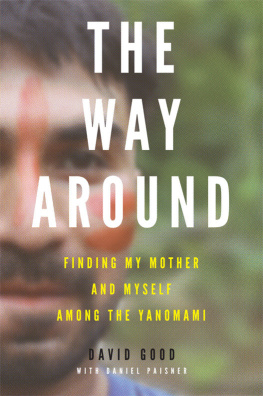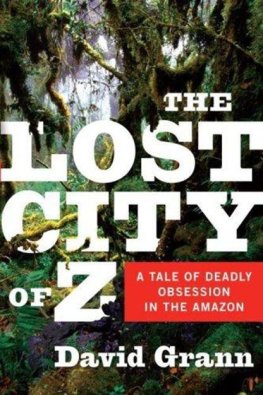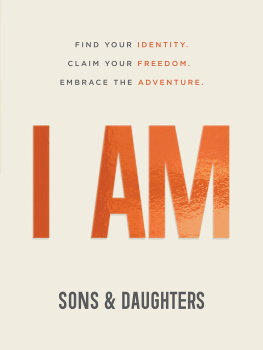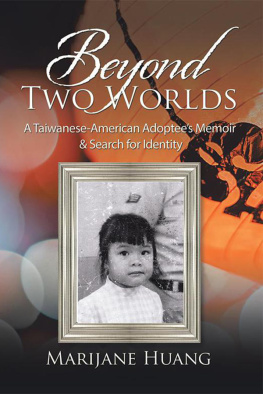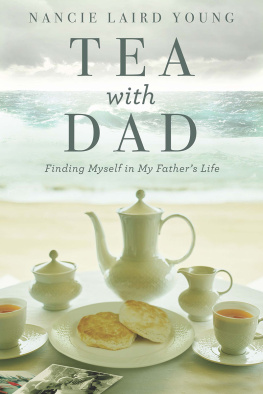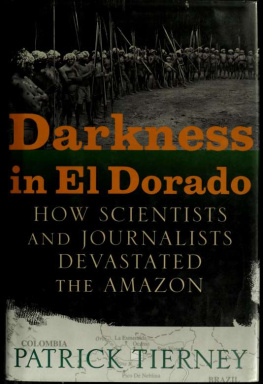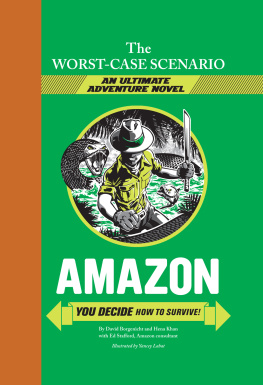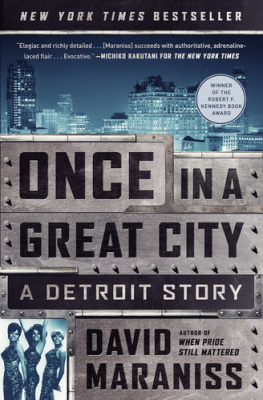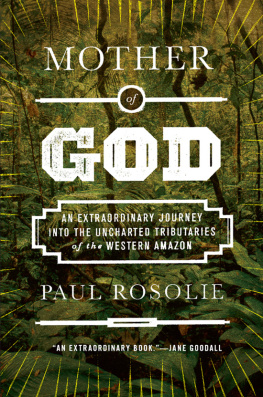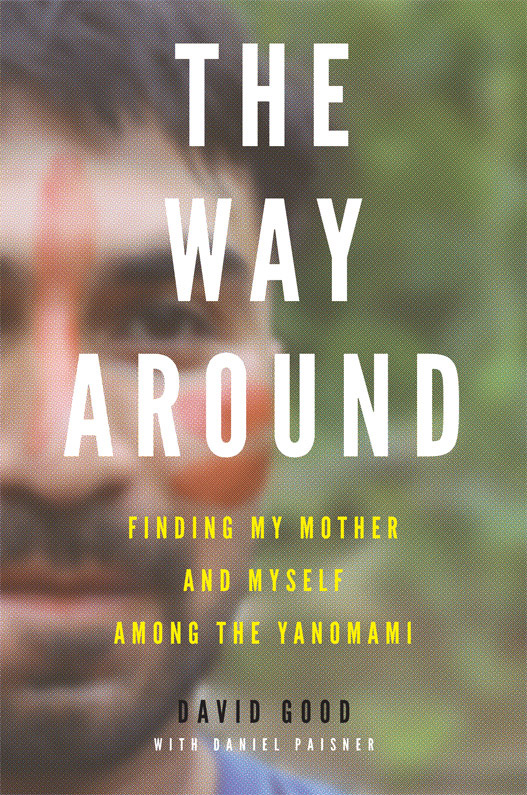Science is nothing but the finding of analogy, identity, in the most remote parts.
RALPH WALDO EMERSON
UPPER ORINOCO, YANOMAMI TERRITORY
We were trekking through a thick of jungle, past our old village. The deserted shabono still stood, but it had been swallowed up by grass and brush that had not been cleared in over a year. This was to be expected, of course. This part of the jungle, this deep in the territory, the flora of the rainforest can choke a clearing in no time flat.
Set your machete down for any stretch and it is like you were never there.
As we passed, I could see the left-behind artifacts of village life: gathered stones, clotheslines, abandoned hearths, broken cooking implements, tattered pieces of Western-style clothing. This had once been the center of activity, the focus of a peoplemy peopleand now it was like a ghost town.
Irokai. I used to live here and play here, my mother said. Well, not in this exact spot, not in this same shabono, but in this general area. I used to lie in my mothers hammock and laugh and laugh.(Okay, maybe it wasnt the very same hammock she uses now, but another one just like it.)I closed my eyes and imagined what our familys area would have looked like many years ago, but I could not picture it.Ihad seen photographsbut, still, I could not picture it. I looked around and around but could find no touchstones, no markers to take me back twenty-plus yearssomething, anything to let me know I had walked this ground before.
Irokai-teri. The people of Irokai. The people of my birth. The Yanomami of my home village, scattered now throughout this jungle, many of them clustered in and around the village they had once called home. The village of my mother, my cousins, my tribe...
They are a seminomadic people, the Yanomami, and so it often happens that when a village moves they must make return trips to pick clean the gardens they have left behind while the new gardens take root.
We had set out from the riverside village earlier this morning, at first light, to see what we could see. I could not think how to tell my mother I wanted to visit our old village. I could only say, Irokai-tekeprahawe. (Irokai, far away.)I could only make a going motion with my hands.
Somehow, my mother understood.
I was allowed to believe the trip was my idea, but it was time for a group to head out to the garden anyway. Irokai-teke. The garden of Irokai, where there was work to be done. They were going with me or without me. We would be gone for several days. There was a group of us, fifteen or so, and we would splinter into smaller groups as we made our wayusually with the men out in front.
It was a long haul, but I could not put a clock on it. This part of the world, there was Yanomami time and there was outsider time. For an outsider, even for some of the missionaries familiar with the region, it could take an entire day to cover this ground. But for this groupoh, man, they plowed through the rainforest like nothing at all, cutting a new path where the old one was meant to be. Like they were walking on a city sidewalk. Barefoot, no less. Me, I was wearing sneakers, which actually were a kind of hindrance once theybecame wet and soaked through with mud, but the soles of my feet had not been toughened to withstand the uncertainties of the rainforest floor.
As I walked at the butt end of our group, trailing my mother and a small cluster of women who seemed to take pity on me and slow their pace so I wouldnt fall too far behind, I wondered if my bare feet would ever be tough enough for the rainforest floorprobably not, I feared. And it was not just the hard earth that caused my feet such trouble. No, there were roots and fallen branches, rocks and creepy-crawly thingsall the jungle-variety nuisances youd expect. But there were also thorns, muddy slopes, protruding sticks that could pierce the soles of your feet, bloodsucking parasitic fleas, snakes, and spiders and about a hundred different dangers, a hundred different ways I could trip, cut, or otherwise hurt myself as I scrambled to keep up. I needed a second set of eyes just to look down and watch where I stepped, while the first set of eyes could look up and ahead.
The garden just beyond the communal living area still yielded its share of crops, so the Irokai-teri visited the abandoned area from time to time. This explained why there was at least the semblance of a trail. We had been this way beforewe, as in my people; we, as if I belonged. It also explained how the trip came about in the first place. See, it made no sense to go on a sightseeing mission, just so I could visit the place I had once lived, but it made all kinds of sense to organize this trek in search of food. Plantains, mostly, but there were also various fruits. We would bring back what we could carry to the people of our village. The women had brought along several empty baskets for just this purposethe jungle equivalent of bringing your own eco-friendly bags to the grocery store, I guess.
I thought it was remarkable that the garden continued to thrive, after being neglected for so long. It spoke to me of the strength and resilience of my people left alone in this samejungle, untended. In this one small way, the area still lived and breathed and continued to provide.
In our core traveling group there was me, my mother, my two wives, and another woman from the village whod brought her infant child along for the adventure. Even the woman with the child was making better time than me. The men were way, way ahead, but they carried a much lighter loadjust their bows and arrows. The men were meant to be quick on their feet, agile, able to quickly draw their weapons in case an animal appeared that might make a suitable dinner, or in case the group was attacked by enemy raiders. The women were burdened with baskets and clothes and firewood... and, me.
It was hotnot crazy hot, the way it can get in the middle of the day, but hot enough. I was bone tired. I was twenty-four years old, in reasonably good shape, but my mother and these other women were running me into the ground. I was dragging, flagging, spent. At one point, one of my wives saw that I was having some difficulty and stopped to wait for me. She motioned to my pack, as if she meant to carry it. I responded with bluster. I said, Yanomami keya! (I am Yanomami!)As if I had something to proveto myself, to the people of my village... to my mother.
Yanomami keya!
The others, they could see that I was struggling, so it was decided that our core group would stop for a rest beside a narrow creek, and as we set down our few things my mother reminded me in broken English and the generic, universal hand gestures that had quickly become our primary means of communication that this wasnt the first time I stood on this very spot. She pointed to me. She pointed to the creek. Then she smiled and pointed back to me, and back to the creek, and I understood that I used to splash in these waters as the village elders fished, as the women washed our clothes and cleaned our pots. I had seen pictures of this very spot, I nowrealized. Home movies, tooshot by my father when I was only a year or so old. But my memories were once-removed. I could not recall ever being in just this place, in just this way.

